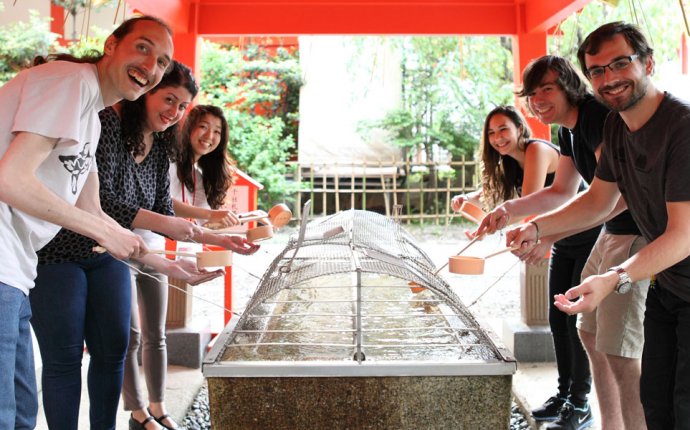
Japanese culture activities
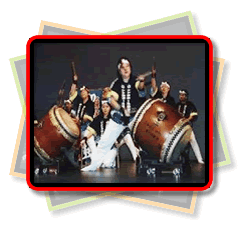 Traditional Japanese drums have, in most cases, origins from festivals. This music called the "Taiko", switched with ease from battlefield to shrine worship. The drum music today, however, plays a new role. Its dynamic rhythm is used to celebrate openings and grand occasions. The instruments of drummers have also become more diversified, and other instruments such as the flute, gong, etc., found their way into the group.
Folding colored paper into different forms (origami) is a very popular pastime. Animals, flowers and even gift boxes can be made from a single piece of paper.
Traditional Japanese drums have, in most cases, origins from festivals. This music called the "Taiko", switched with ease from battlefield to shrine worship. The drum music today, however, plays a new role. Its dynamic rhythm is used to celebrate openings and grand occasions. The instruments of drummers have also become more diversified, and other instruments such as the flute, gong, etc., found their way into the group.
Folding colored paper into different forms (origami) is a very popular pastime. Animals, flowers and even gift boxes can be made from a single piece of paper.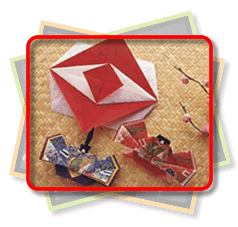 The most common of such is making the origami crane. When a person is very sick, relatives or friends fold a thousand paper cranes to pray for the sick person to get well soon.
Buyo - Japanese dances, is a popular pastime among the Japanese, from the young to old. In the past, following the prohibition of Kabuki dancing by women, all professional Japanese dancers were men.
The most common of such is making the origami crane. When a person is very sick, relatives or friends fold a thousand paper cranes to pray for the sick person to get well soon.
Buyo - Japanese dances, is a popular pastime among the Japanese, from the young to old. In the past, following the prohibition of Kabuki dancing by women, all professional Japanese dancers were men.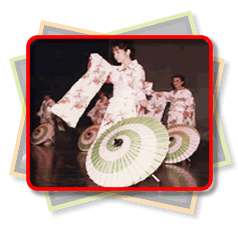 But, far more women than men practice Odori (Japanese dance) in the present days. For fun or as a form of exercise, join us & delight in this cultural heritage of Japan.
The methods of writing with a Japanese brush and sumi or dark Japanese-style India ink.
But, far more women than men practice Odori (Japanese dance) in the present days. For fun or as a form of exercise, join us & delight in this cultural heritage of Japan.
The methods of writing with a Japanese brush and sumi or dark Japanese-style India ink.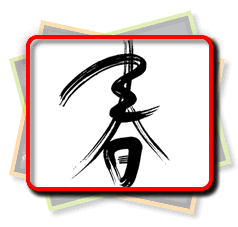 In it, beauty is sought through the shape and position of the characters drawn, the gradation of the ink, and the force of the brush strokes. Calligraphy takes lots of practice, and Japanese learn it from as young as during their primary school days.
Tea Ceremony dates from the 15th century. In this ceremony, the host prepares and serves tea with o-kashi (sweet/cake) for guests. Both the host and the guests follow highly refined rules that are designed to keep the ceremony simple and attractive.
The simplest way of learning Japanese pronunciation is through singing. Join us and immerse in the fun during our singing sessions conducted by Japanese instructor.
In it, beauty is sought through the shape and position of the characters drawn, the gradation of the ink, and the force of the brush strokes. Calligraphy takes lots of practice, and Japanese learn it from as young as during their primary school days.
Tea Ceremony dates from the 15th century. In this ceremony, the host prepares and serves tea with o-kashi (sweet/cake) for guests. Both the host and the guests follow highly refined rules that are designed to keep the ceremony simple and attractive.
The simplest way of learning Japanese pronunciation is through singing. Join us and immerse in the fun during our singing sessions conducted by Japanese instructor.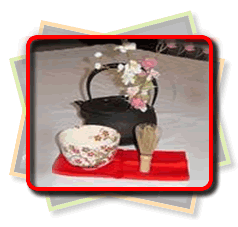 Learn to sing Japanese songs and excel in the language.
A favourite pastime even with the Singaporeans today. But what is the meaning to the word? Kara is the Japanese word meaning "empty" and oke is the first part of the Japanese pronunciation of the English word "orchestra". The Japanese have a talent for creating synthetic words of this type. Kara-oke is a device for playing an orchestra accompaniment recorded on tape/disc.
Learn to sing Japanese songs and excel in the language.
A favourite pastime even with the Singaporeans today. But what is the meaning to the word? Kara is the Japanese word meaning "empty" and oke is the first part of the Japanese pronunciation of the English word "orchestra". The Japanese have a talent for creating synthetic words of this type. Kara-oke is a device for playing an orchestra accompaniment recorded on tape/disc.









